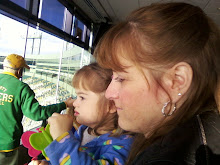Support.
What is it not?
Giving advice when one just wants a hug.
Demonstrating your need to show you have some special knowledge on the subject.
Letting politics get in the way.
Challenging or confronting someone when the person is not psychologically ready.
Focusing on yourself.
Not being there.
Holding people up to the standard of perfection.
Talking more than you listen.
Thinking you know how someone feels.
Making assumptions or judgments.
Support.
What is it?
Listen with no judgement.
Give advice only when asked for the advice.
Understand that two people can go through the same general problem, but that each experience can be quite unique.
Leave your personal or political agenda at the door.
Recognize that there is an appropriate time and place for caring confrontation. Sometimes the person isn’t ready for it. Other times they may need some nudging. There is a very fine line that you should try your best not to cross.
Self-disclose only for the person you are supporting's benefit, not for your own. And when you self-disclose listen more than you talk.
Step up and just help. Don’t wait or sit in silence.
Recognize there is a learning curve to this journey – when you are new to this, you have raw emotion. Sometimes you need to grieve. Sometimes you will be contradictory in how you feel. It doesn't mean you are lying.
Always remember we are all human.
Sometimes I receive great support, sometimes not.
Sometimes I witness others giving great support, sometimes not.
Sometimes I myself give great support, and sometimes I sadly do not.
But it is my opinion that what we really need to do as a community of individuals who love someone with Down syndrome is to set aside our personal agendas, learn from the example of our children’s love, and try to improve in the support we give to one another. As stated above, we are human, but we can at least try.
-Karyn

































